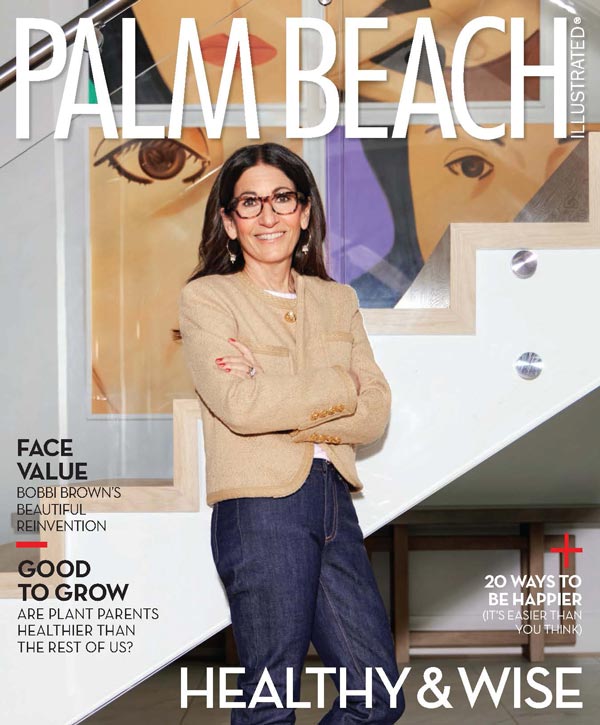When childhood friends Art Garfunkel and Paul Simon started mimicking the Everly Brothers in school talent shows, they had no idea they’d one day record a string of albums that would define the sound of the 1960s. Their success was due in part to Art Garfunkel’s rich voice, showcased on iconic hits such as “Bridge Over Troubled Water.” An avid reader and poet, Garfunkel will appear at the Sunrise Theatre in Fort Pierce February 2 to tantalize audiences with Simon & Garfunkel classics and songs from his solo years. He recently spoke with PBI.com about his voice and career.

PBI.com: What was your relationship to music growing up?
Garfunkel: I heard singing around the house. My parents could sing. I heard it on the radio, [artists like] Nat King Cole. I realized I had a real nice voice at about 5 or 6 years old. Very early I saw that I could sound like the radio and be very smooth. I started looking for stairwells, rooms where I could sing in private and see, “Is this really as good as I think it is?” And I would start getting goosebumps if I picked the right songs.
What kinds of songs were you singing at that time?
(Sings) When you walk through a storm, hold your head up high and don’t be afraid. Do you know that one? It’s “You’ll Never Walk Alone” from the musical Carousel, I believe.
If you could relive one year from your time in Simon & Garfunkel, which would it be and why?
The year we made Parsley, Sage, Rosemary, and Thyme. We made five albums that made up our popular career, and Parsley, Sage is the middle one. When you’re making the third one, you’re in your stride. We were [then] realizing that an album could be as arty as you want it to be. And this was all Beatles influenced. Let’s chase after The Beatles, we were thinking. We could make our album as artful as we wanted it to be. That was a very exciting notion. There was no limit on how cute we could finesse this deuce. And the budget was there. You really start finessing your records. And as record producers, you’re not just the writer and the singer now, you’re the record producer and you really have a lot of fun.
What have been some of your favorite concert venues you’ve performed in?
I’ll start with No. 2, I played it recently. No. 2 (makes a drumroll sound) Carnegie Hall. There’s something about the shape of that room and the plaster walls that make Carnegie Hall really fun. But the No. 1 room, the killer of them all, is in London, the Royal Albert Hall. It’s so beautiful. It won’t let you down. If you get there, you’ll walk in the room and you’ll go, “Oh, man it doesn’t let you down. Look how much detailing work? So much fine English whatever, inlay or carving.” It’s just a ton of work. And the room is large, sort of oval. It’s six or seven tiers. It has got 6,000 seats. It’s a magnificent thing. I’ve worked it a few times and the sound is heaven on Earth.
What do you remember most about Simon & Garfunkel’s historic 1981 concert in Central Park?
I remember rehearsing in the afternoon and feeling that the buzz around town was growing rapidly. The day of the show, New York City at noon felt like something. And New York City at 4 in the afternoon felt like a whole lot of something else. And New York City at 7 really felt exciting. You could feel the buzz around town was rapidly growing into monumental proportions.
When you went solo, what did you want listeners to get from an Art Garfunkel album that they couldn’t get from a Simon & Garfunkel album?
Well, I always looked at the game as the same thing; make an album as exciting of a listening experience as it can be. Just knock them out with how good the songs are, how good the singing is, how good the grooves are. I was after that. I remember my one slant that I was using was show the audience how much the Simon & Garfunkel records carry over easily to the album I’m about to make. In other words, I wanted to show that I was much the producer of Bridge Over Troubled Water and Bookends, and those records sound the way they do because the producer was me—me and Roy [Halee] and Paul [Simon]. But I knew how to produce that sound and I hoped to carry it over into my own solo albums.
 I love that you’re an avid reader. Where did this passion originate?
I love that you’re an avid reader. Where did this passion originate?
Like everything in life, you fall into something and then before you know it, it’s your habit, it’s your way. I fell into reading when I had so much time on my hands when I was making [the film] Catch-22 with Mike Nichols down in Mexico. We were all waiting at the hotel to be brought down to the set because it was a large cast. So there was a lot of slack time, that’s how movies are. And I began to read War and Peace and Crime and Punishment and Portnoy’s Complaint. I started going from book to book right there, and I guess I just never stopped. I found it such a lovely retreat. It’s the shy person’s retreat.
Do you have a specific genre or type of topic you’re drawn to?
I try to stay interesting to myself. I ask myself to be varied, to be rich, to be a thinker, to be nontrivial, to be interesting. So my list has almost no fluff. Nothing in there is weak stuff—it’s body and content. I find Michel de Montaigne to be fabulous. This is a French philosopher from the 1500s. Boy, is he good. He’s a thinker whose ideas are exciting.
You’re a fan of long-distance walking. How did this hobby come about and what do you feel you gain from these journeys?
I’ve gained a certain spiritual ease. I’ve gained a certain posture. I’ve gained perspective. I fell into it when I went to Japan years ago on a freighter alone. As I came into the Tokyo harbor—maybe it was Yokohama—I thought, “Right, I’ve never been in this country. How shall I see it? I think I’ll walk across it from the Pacific Ocean to the other side. It’s not that wide. I’ll walk across it. I’ll drop whatever baggage I’ve brought with me in a hotel in this port here and I’ll carry next to nothing and walk across the country with maps and see if it works.” And it was daring and brave and weird and scary, and it did not work for the first day. On the first night I didn’t know what to do. I knocked on a door and I saw the wife turn to the husband and try to describe me and they easily threw me away. When I looked up the word I heard them used—stori—I saw it was “alone.” He’s alone. This word “alone” killed me. So then I vowed to continue the next night but [I decided I would] smile. Keep a very friendly, humane demeanor. Be Mr. Everyman. The attitude really matters. Keep an upbeat, smiling attitude. All’s well with me, all’s well with you. And then I started using taxis and it all worked. I hitched a little. I crossed Japan, easily. And then came to crossing America by using taxis. I eventually had an assistant, Matt Grade. So Matt and the Hertz rent-a-car are the modus operandi.
What can audiences expect from your performance at the Sunrise Theatre?
I’m going to accept the fact that I’m getting up in years. I think I’ll sit down and sing half Simon & Garfunkels—I don’t want to be coy and leave out “April, Come She Will” or “Scarborough.” They’re in there, and they should be there otherwise you’re being tricky. But I don’t think I’ll do “Mrs. Robinson.” There’s less is more. My show is quite empty. I was working only with the Martin guitar for a couple years in the redesigning of the show. The voice was out, you know, and I put it back together again with just the one guitar. Now, I’ve added the great Dave McKay on piano. I’m crazy about this guy. He’s the best player I’ve ever worked with in my life. Now, we can do “All I Know,” and “Bridge Over Troubled Water” gets a splash. Then I’ll do things that come from my career, things that you just feel like doing. … The show also has these prose poem bits in it. I keep going to things I wrote that are trying to make you think and be entertained, and they weave back into the song. So this makes my show unusual in that way.
Between the poetry and the singing, it sounds like your shows are a true reflection of you and your passions.
I am the thinking man.
You’ve led a pretty remarkable life and have garnered some significant accolades. Is there anything you still hope to accomplish?
Yeah, I want to pick up Bob Dylan’s Noble Prize if he’s not going. If he’s not going, I’ll scoot over. I don’t look for the world’s accolades as something I want. I just don’t see it that way. I look for the next show to be just a little better than the last show, and for the audience to give me that feeling of, “Yeah, man. We loved it. You made us happy.” To give them that thing, just at the next show. And to not be thinking beyond that for any awards is all I want.
Any final thoughts?
I want readers to know that I’m very alive to this singing on stage thing. I’m not one iota jaded to it. If anything, at this advanced age in my life I am burning with the fun of doing this work.








Facebook Comments